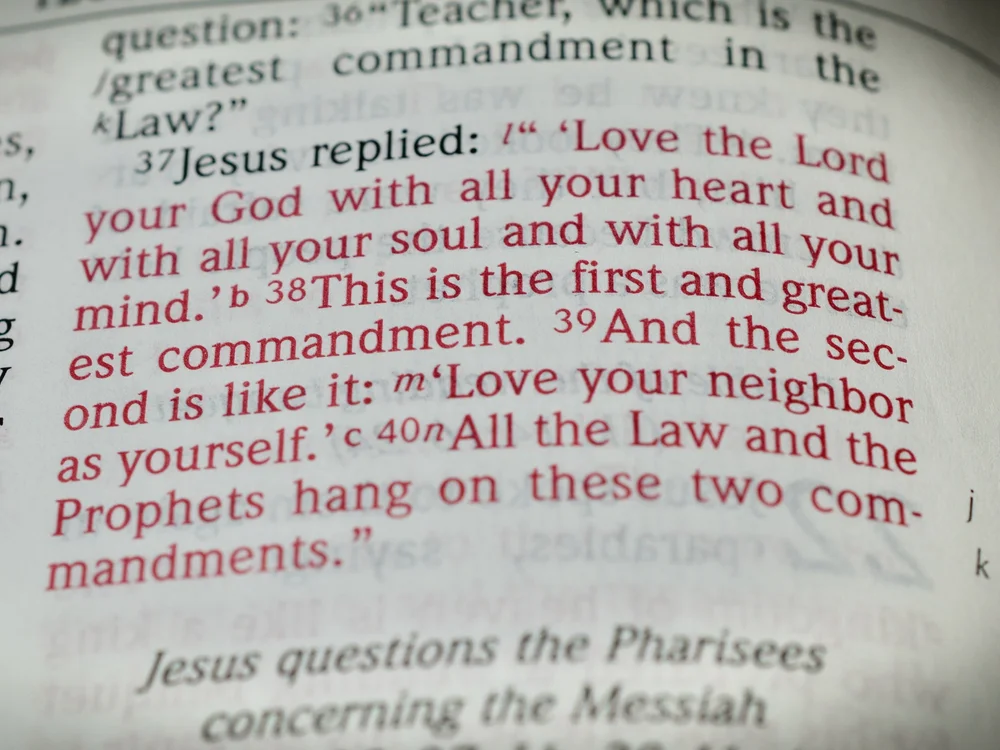
Photo Credit: nativeart photo / Shutterstock.com
Disclosure: This post may contain affiliate links, meaning Beautiful Christian Life LLC may get a commission if you decide to make a purchase through its links, at no cost to you.
There is a serious shortage of pastors and elders today. Theological college enrollments are down. Many existing leaders, whether paid or voluntary, do double duty as borrowed elders, and too many are spread as thin as Vegemite across too many roles and committees outside of their local church.
When a leadership shortage distracts us from the needs of our own flock, and from identifying, discipling, and training new leaders, then a vicious leadership-shortage circle emerges.
The collapse in Western nations of volunteerism in general and “the busyness of twenty-first-century life” do not explain the lack of leaders, for every age has been busy, and cars and technology have arguably given us much more disposable time than our ancestors.
As always, “the heart of the problem is the problem of the heart.” Fewer Christians put up their hand to serve because they fail to understand the nature of service, and the heart that must drive it.
The first four verses of 1 Peter 5 give a powerful explanation of the true nature and right motivation of church eldership, the principles of which apply to church service of every kind.
1 Peter 5:1 To the elders among you, I appeal as a fellow elder and a witness of Christ’s sufferings who also will share in the glory to be revealed (NIV translation used throughout article):
Peter writes in the mid-sixties AD to persecuted churches across Asia Minor. He concludes his letter with something in particular for the πρεσβυτεροι (presbyteroi), the elders of the churches.
Peter writes as an apostle of Jesus Christ (1:1): he had seen the risen Jesus and had been sent by him to bear witness to the resurrection. He writes now, ex officio, as “a fellow elder.”
During the Exodus, Moses—at his father-in-law Jethro’s urging—set aside a corps of older and wiser men to hear and judge disputes (Ex. 18:13–26). This role carried across into the synagogues, who were led by rabbis and elders. From the beginning the church, following the synagogue pattern, appointed mature men of good character with the ability to teach to the office of presbyter—to lead, teach, oversee, and protect the flock (1 Tim. 3:1–7; Tit. 1:5–9).
Peter writes to existing elders and prospective elders, but the whole flock must hear his words so that they know what to expect from their leaders, and because every Christian is called to exercise some degree of elder-like love and care.
As an apostle, Peter was “a witness of Christ’s sufferings.” Peter saw Jesus’ earthly poverty and exhaustion, the Pharisees’ violent hostility, and his arrest, trial, scourging, crucifixion, death, and burial. Peter writes also as a Christian, as one “who also will share in the glory to be revealed.”
Peter thus orientates the elders: “Remember the path that Christ trod: first suffering, then resurrection glory.” Jesus told Peter that he would tread this same path (John 21:18–19). So must we all “share in his sufferings in order that we may also share in his glory” (Rom. 8:17).
Elders must expect this suffering-then-glory programme for in times of persecution they will be targeted first.
In his superb seventeenth-century meditation upon Peter’s letter, Robert Leighton urged elders to shape their hearts by Christ’s suffering:
To see the only begotten Son of God, as stricken and smitten of God, bearing our sorrows, and wounded for our transgression, Jesus Christ the righteous, reckoned among the unrighteous and malefactors; to see him stripped naked, and scourged, and buffeted, and nailed, and dying, and all for us; this is the thing that will bind upon us most strongly the duties of Christianity, and of our particular callings, and best enable us, according to our callings, to bind them upon others.
Peter urges the eldersto “be shepherds of God’s flock that is under your care, watching over them” (1:2a). Shepherds lead, feed, watch over, and protect their sheep. There is a note of urgency here: “Be shepherds! God’s people are threatened and needy, so step up!”
How must a presbyter shepherd? In three ways: willingly, humbly, and by example.
1. Shepherd Willingly
1 Peter 5:2 Be shepherds of God’s flock that is under your care, watching over them—not under compulsion, but because you are willing, as God wants you to be; not pursuing dishonest gain, but eager to serve.
An African friend told me recently that his country’s government is cracking down on pastors—not for religious reasons, but for corruption. In Africa, pastors command above-average respect and income, and this has attracted too many unworthy and unqualified people who see the flock as only so much meat and wool.
It was a problem in the first century: elders handled funds for poor relief, and it was not hard to dip one’s hand into the bag (John 12:6). The Reformation was necessitated, in part, because too many absentee prelates lived off the fat of their abandoned congregations.
I know not a single person who entered the ministry for the money. But after decades and the accumulated exigencies of mortgages and school-fees, and the immense difficulty of starting a new career, how many continue as pastors because their finances leave them no other choice?
Here is Peter’s standing challenge: pastor the flock willingly, without ulterior motives, and “eagerly”—προθυμος (prothymos) refers to strong devotion and zeal.
This does not preclude serving out of a sense of duty. There is a shortage of elders, the church is suffering, the situation is urgent: Christian men need to step up! So, for the good of the flock, step up willingly and zealously.
2. Shepherd Humbly
1 Peter 5:3a Not lording it over those entrusted to you.
“Those entrusted to you” translates κληρος (klēros), “allotment,” “portion,” “heritage.” The flock belongs to the Lord: “The Lord’s portion is his people, Jacob his allotted inheritance” (Deut. 32:9). He purchased them at great cost:
1 Peter 1:18–19 For you know that it was not with perishable things such as silver or gold that you were redeemed from the empty way of life handed down to you from your ancestors, but with the precious blood of Christ, a lamb without blemish or defect.
We are not the lord of the flock, and we must not act as though we are. Rather we care for the flock as the Lord’s treasured possession, redeemed at the cost of the blood of his Son. Matthew Henry comments: “They are God’s people, and should be treated with love, meekness, and tenderness, for the sake of him to whom they belong.”
Let us own Jesus’ solemn three-fold calling of Peter, but without his hurt, born of wounded self-assurance and pride:
“Simon son of John, do you love me more than these?” “Yes, Lord,” he said, “you know that I love you.” Jesus said, “Feed my lambs.” Again Jesus said, “Simon son of John, do you love me?” He answered, “Yes, Lord, you know that I love you.” Jesus said, “Take care of my sheep.” The third time he said to him, “Simon son of John, do you love me?” Peter was hurt because Jesus asked him the third time, “Do you love me?” He said, “Lord, you know all things; you know that I love you.” Jesus said, “Feed my sheep.” (John 21:15–17)
For the love of Christ, let us love Christ’s blood-bought flock.
3. Shepherd by Example
1 Peter 5:3b But being examples to the flock.
Modern Australian sheep farmers drive their flocks with barking quadbikes and kelpies. But in the ancient world shepherds walked in front of the sheep and called each one to follow him by name.
We must not shepherd from behind with a stick, but from the front with love. We must lead not with harsh words from the pulpit, the “coward’s castle,” “six foot above contradiction,” but by setting an example of love for Christ and love for his people.
“Do as I say, not as I do” never works and is not Jesus’ way. Matthew Henry urges that elders “practise the holiness, self-denial, mortification, and all other Christian duties, which they preach and recommend to their people.”
Peter concludes his exhortation to elders with a powerful motivation:
1 Peter 5:4 And when the Chief Shepherd appears, you will receive the crown of glory that will never fade away.
I am so grateful that Jesus is the Chief Shepherd of the flock. Though I am weak and foolish and lead the flock with daily stumblings and failings, he is strong and wise and never sets a foot wrong. I sleep at night knowing that he will shepherd his flock aright despite and even through my failings. He will not allow a single sheep to put a single foot outside his perfect path—passing now through green fields and cool streams, and then through the valley of the shadow of death.
Yet we must be diligent for every elder must give an account of their shepherding to the Chief Shepherd, remembering that as teachers we will be “judged more strictly” (James 3:1).
But for those who have shepherded in his strength—willingly, humbly, and by example—there will be “a crown of glory.” Not a wilting laurel wreath, but an unfading golden crown.
Let us not try to out-spiritualize the Bible, the desire for a trophy is not necessarily unworthy. The circumspect athlete stands on the podium, receives his medal, looks at his parents and wife and family, places his hand on his heart, and says: “This is for you.” They helped and encouraged him, so his success is their success, his reward is their reward. He delights in the prize because it sheds glory upon them.
So we will receive that unfading crown with thankfulness, and then with exultation we will cast it before the throne of Christ, crying:
“You are worthy, our Lord and God, to receive glory and honor and power, for you created all things, and by your will they were created and have their being.” (Rev. 4:11)
May the Lord raise up many more pastors and elders for the flock, and fill those who serve his people today with his Spirit, power, and love.
This article is adapted from “The Heart of the Shepherd-Elder,” which was originally published at AP, the National Journal of the Presbyterian Church of Australia (PCA).
Related Articles:
-
Things I Wish I'd Known about Pastoring a Church When I Was Young
-
A Pastor’s Surprise: Systematic Theology Classes in the Local Church
from Blog - Beautiful Christian Life https://ift.tt/NqbpJ7F
via IFTTT


















